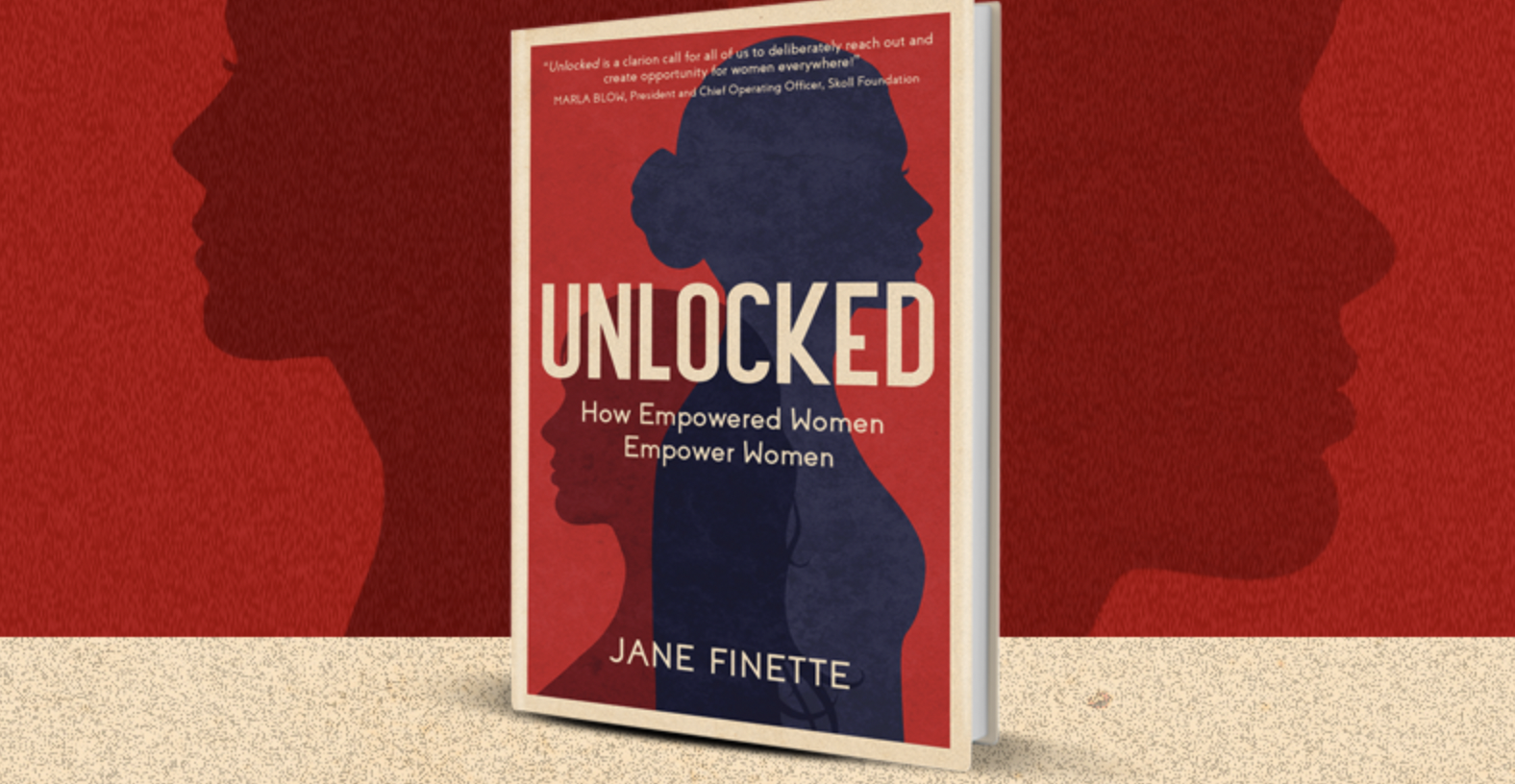When I was a CEO, I knew I needed co-pilots around my executive table. Piloting a business in an environment of increasingly fast-paced turbulence, with such high stakes decision making and so many strategy, execution, and leadership challenges, requires Collective Intelligence in the cockpit. I was running high technology aerospace hardware and software companies, serving […]
Continue readingIgnoring The Most Valuable Resource

Comedian Robin Williams once suggested “If women ran the world we wouldn’t have wars, just intense negotiations every 28 days.”
Consider a recent analysis of American lawmakers showing how women have gone from being 12% of state legislators nationwide to 30% over the past 40 years.
In the state of Nevada, where women are 60% of the legislature, there are now laws expanding access to healthcare, family planning, and strengthening penalties for domestic violence. The influx of female lawmakers has brought a fresh perspective to health issues, COVID-related job loss, poverty, and small-business ownership.
All this in addition to focusing on the state’s regular issues (balanced budgets, education, workforce development, etc.), but without having to spend every day arguing with the entrenched patriarchy over whether there’s such a thing as systematized gender bias.
“We problem-solve differently,” says Nevada Republican Assembly Leader Robin Titus, adding, “We negotiate differently. Women do a better job keeping it on policy and not taking things personally.”
With the recent inauguration of US Vice-President Kamala Harris, assessing the strengths women will add to any organization’s management team appears to be a timely issue.
Managing Nations
The first appointed female head of state didn’t take office until 1960 (previous women rulers were hereditary monarchs). In 1974, Isabel Peron became Argentina’s first woman president, making her the first woman in history to hold the top position of power.
Since then, it’s become more common for women to be elected to lead their nations. Germany, India, Brazil, South Korea, Israel, Chile, and the United Kingdom have all elected (or appointed) women as head of state to command nuclear weapons, powerful economies, vast populations, and their peoples’ respect. At this writing you’ll find women in charge of:
Bangladesh – Barbados – Denmark – Estonia – Gabon – Georgia – Germany – Greece – Iceland – Kosovo – Myanmar – Namibia – Nepal – New Zealand – Norway – Serbia – Singapore – Slovakia – Taiwan – Tanzania – Togo – Trinidad & Tobago – Zimbabwe
Meaning 11.8% of the world’s nations have a woman as president or prime minister, including the 4th-largest economy on the planet.
It has to make one wonder what opportunities are being missed by those who consider women to be less qualified, efficient, or equal than men.
Women Managing
Fortune Magazine reports 37 women are leading Fortune 500 firms…a new record. Women make up 51% of the US population, but only 7.4% of Fortune 500 CEOs.
Meaning despite the sometimes significant progress made by women in the corporate world, they are still overlooked, purposely ignored, or patted on the head. It’s counter-productive…and bad for business.
In fact, women as a group have significantly more experience with financial matters than men do. Gallup reports more women than men make the household budget and pay the bills. Roughly 80% influence family purchases, and a majority guide savings and investments.
Now consider that the US has churned out more women college graduates than men every year since 2014. Today, roughly 13 million (US) women-owned businesses generate $1.9 trillion in sales and employ 9 million people.
So That’s Good, Right?
Despite this hopeful beacon, there are only seven countries in the world where men and women own businesses at an equal rate. In most countries, women own significantly fewer businesses than men. Even in countries where women own a substantial portion of firms, they tend to perform at a lower level than businesses owned by men.
Still, bringing more women into the marketplace increases overall economic growth. As any entrepreneur will tell you, business ownership is not a zero-sum game; one company being successful does not inherently drive another out of business.
In fact, because they’re approaching your business from a different perspective than men do, women will almost automatically open businesses and divisions that cater to a different clientele or niche. They’ll sometimes have radically different ideas regarding new products, services, and brand extensions. Strategies will improve regarding financing, marketing, sales, personnel, and operations.
Indeed, their very presence on a management team can be expected to account for universally improved economic growth and stability.
Obviously, those overlooking women as an engine of business growth do so at their own peril!
What’s Happening At Home?
A recent global study found consistent gender differences in time spent on necessities.
Despite both genders being stuck at home during the pandemic, women (particularly mothers), are still expected by most societal norms to invest more energy in household tasks (childcare, cleaning, cooking) than men. Women also report lower levels of happiness than men.
This is hardly coincidental!
Meanwhile, In the Boardroom…
One study after another finds similar results: Any board of directors with at least three women on it will have better financial performance. Despite this widespread acknowledgment of what should be common sense, today only 36% of global boards have at least three women.
As Voltaire once observed, “Common sense is not so common.”
In fact, Deloitte did a study of 66 countries and determined that women hold just 16.9% of board seats worldwide (2019) and are still largely under-represented on corporate boards globally. Progress in changing this trend continues to be slow.
COVID Leads To A Balanced Life
Societies beyond the United States are increasingly seeing benefits to tapping into women as a force of growing businesses…and not merely as an audience to cater to using cute or clever marketing.
Over the past two years, as a counterweight to fast-aging populations and low birth rates, Japan and South Korea have begun pushing women to stay in the workforce longer. Both nations had been scoring poorly on women’s economic participation and political empowerment, and the negative impacts have been felt at the bottom line. The traditional workplace gender gap has caused both countries to lag other advanced economies.
“Women workers are often held back because of the lack of flexibility in corporate jobs, and the ‘time poverty’ they face as unpaid care workers falls disproportionately on their shoulders,” reports a study by the McKinsey Global Institute.
Layered atop this challenge is the intense work culture in Japan, South Korea, and elsewhere that frequently leads to death by overwork. The key to solving both problems appears to be establishing work-life balance.
Life Is More Than Making Money
Globally, the hybrid work models that have increasingly taken root since the pandemic began have forced many businesses to split workdays between the office and home. Women around the world are enabled to spend less time commuting and working in an office environment. Better able to manage work-related activities alongside care responsibilities, they’re more inclined to simultaneously have a career and a family.
Today, roughly 80% of firms surveyed in Japan say they’ll continue flexible work after Covid-19. No longer promoting the traditionally glorified culture of overtime and putting a higher emphasis on output (rather than time spent at work) will help women and the economy by leveling the playing field between the sexes, lowering the population’s median age, and allowing women to have the work-life balance so many crave.
Furthermore, having eliminated the need to choose family OR career, there is greater potential for higher levels of overall happiness. As noted in The World Happiness Report; “Autonomy and the freedom to make life choices are known to be connected to subjective well-being.” This might help explain why, though the US has the #1 economy in the world, they rank #9 in overall happiness. This compares to Finland, which has the 43rd biggest economy…but ranks #1 in overall happiness.
Taken together, this all suggests that, while it will take a generation for the impact of these decisions to be felt, the changes being forced upon us by the pandemic should have long-term benefits to society, gender relations, health, happiness, and the corporate talent pool.
Here’s The Bottom Line
Whether you believe it or not…and whether or not you’re happy about it…change IS coming to the global workplace. Much of the groundwork has been laid by COVID, building on longstanding demographic trends. Some of it is financially motivated. And some of it is just because people are fed up with women being treated as second-class citizens.
The introduction of flexible working styles has created an environment in which men can do more to contribute on the home front. Those that do will find willing domestic partners and more profitable and rewarding careers in the workplace.
Meaning whatever your incentive – lifestyle, peace at home, or an improved bottom line – the time has come to recognize that women are equally talented, equally skilled, and in some cases wiser than men.
And the next time you’re considering competitive threats in business, odds are excellent your adversaries will have more women on their teams than you do.
But… wouldn’t it be more strategic to turn the tables on them and beef up your management team now?




















